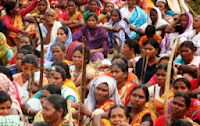[MLE] Videos from the 3rd International English Language Teacher Educator Conference
Dear multilingual education friends, The British Council is pleased to share the link of the videos from the 3 rd International English Language Teacher Educator Conference (TEC) held in Hyderabad from 16 - 18 March 2013. The videos have been uploaded on YouTube and you can view them at this link . There are some interesting presentations such as “ Evaluation Study of MLE of Odisha ” by Lata Pandey from NCERT, “Grounding ELT in an MLE Framework” by Ajit Mohanty from JNU “Importance of Mother Tongue Education for Quality Education” by Pamela Mackenzie from INfD Enjoy watching them and others. From some of the speakers there are presentation available also .

